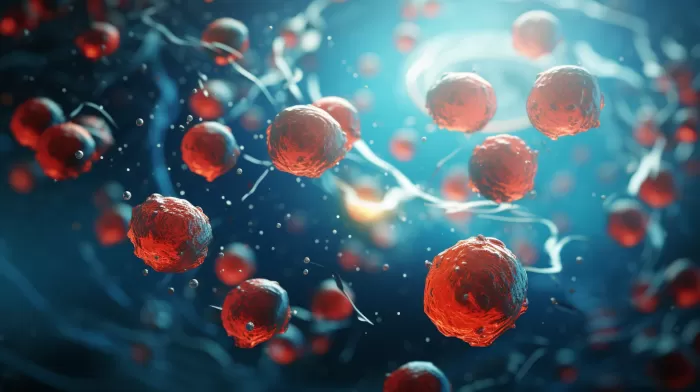Cancer is a complex and multifaceted disease with various factors influencing its growth and spread, such as smoking, radiation exposure, viruses, and genetics. One of the hidden causes of cancer that often gets overlooked is the destructive impact of free radicals on our bodies. By understanding this underlying mechanism, you can be better equipped to prevent and even treat cancer without solely relying on chemotherapy, radiation therapy, or invasive surgery.
Understanding Free Radicals
Simply put, free radicals are atoms or molecules with an odd (unpaired) number of electrons. For example, a helium atom has two electrons circling its center, which is made up of two protons and two neutrons. If one of those electrons “goes away,” the remaining electron no longer has a mate, and you’re left with an electrically charged free radical.
Once formed, these highly reactive radicals can start a chain reaction, similar to dominoes. In your body, if free radicals react with the DNA in a cell and the cell can’t repair its DNA fast enough, it becomes programmed to function poorly, die, or start a new cell line that we call cancer.
Sources of Free Radicals
Your body constantly generates free radicals during cellular respiration (where oxidative energy is generated) and immune system cell activity. They are also produced from external sources such as ultraviolet radiation, cigarette smoke, car exhaust, heavy metals, trans-fatty acids, chemicals used in food processing (like nitrosamines), preservatives, dyes, and even charcoal from barbecued foods.
Over time, these “silent killers” can wreak havoc on your body by destroying cell membranes, causing DNA mutation and genetic damage, weakening your immune system, accelerating the natural aging process, turning cholesterol into sticky plaque that clogs arteries, and oxidizing LDL cholesterol—which can lead to atherosclerosis, hormone dysfunction, and even diabetes.
Smoking is particularly harmful to your health. Recent studies show that 90 percent of lung cancers occur in smokers, and 90 percent of mouth, larynx, esophagus, and liver cancers occur in smokers who also consume alcoholic beverages.
It’s essential to remember that free radical damage accumulates with age. If the production of free radicals becomes excessive, severe damage can occur.
Fighting Free Radicals with Antioxidants
The good news is that you can mitigate the harmful effects of free radicals by consuming a diet rich in antioxidants. Antioxidants are molecules that neutralize free radicals, thus preventing them from causing cellular damage. Some well-known antioxidants include vitamin C, vitamin E, and beta-carotene.
The best way to ensure adequate intake of antioxidant nutrients is through a predominantly whole-food diet. For example, consuming six vegetable and three fruit servings per day will provide you with optimal amounts of fiber and micronutrients. Then, if approximately half of all your food is cooked, and the other half is raw, you are really on your way to optimal health!
Antioxidant-Rich Foods
To increase your antioxidant intake, incorporate more of the following foods into your diet:
- Berries: Blueberries, strawberries, and blackberries are all rich in antioxidants, particularly anthocyanins, which give them their vibrant colors and may help protect against cancer.
-
Leafy Greens: Spinach, kale, and collard greens are high in antioxidants, vitamins, and minerals—making them an essential part of any healthy diet.
-
Nuts: Almonds, walnuts, and pecans are not only a great source of healthy fats but also antioxidants, including vitamin E.
-
Cruciferous Vegetables: Broccoli, cauliflower, cabbage, and Brussels sprouts all contain valuable antioxidants, including sulforaphane, which has been shown to have powerful anticancer properties.
-
Tomatoes: Rich in the antioxidant lycopene, tomatoes have been linked to a reduced risk of various types of cancer, including prostate cancer.
-
Green Tea: A source of the potent antioxidant catechin, green tea has been shown to help prevent several types of cancer, from breast to liver cancer.
-
Dark Chocolate: High-quality dark chocolate contains more antioxidants than many fruits and vegetables. Just make sure to choose chocolate with at least 70% cacao.
In conclusion, understanding the role of free radicals in the development of cancer is vital for prevention and treatment. By adopting a diet rich in antioxidant foods and maintaining overall healthy lifestyle habits, you can help protect yourself from the hidden causes of cancer.



